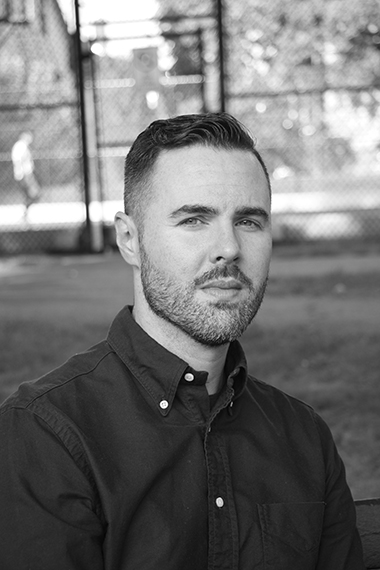Looking to Evidence to Reduce Gang Violence
David Hureau, assistant professor in the School of Criminal Justice, presented his research last month at the annual meeting of the American Association for the Advancement of Science.
 |
|
Hureau is an assistant professor in the School of Criminal Justice. |
ALBANY, N.Y. (March 8, 2018) – The problem of gang violence isn’t going away any time soon, but researchers in the University at Albany’s School of Criminal Justice are working to better understand it.
David Hureau, assistant professor of criminal justice, recently presented the findings of his research on the effectiveness of a gang violence intervention and outreach program in Boston. Titled “The Efficacy of Street Outreach in Reducing Gang Violence,” Hureau’s research was part of a panel at the American Association for the Advancement of Science (AAAS), the world’s largest multidisciplinary scientific society.
The research was included as part of a panel at AAAS, “The Implications of Evidence About Drug Use Hot Spots, Gerrymandering, and Gang Violence.”
Hureau and his collaborators used quasi-experimental methods to study the impact of a four-year Boston gang outreach program that assigned outreach workers to 20 Boston gangs to mediate street conflicts and provide social services.
“We found, somewhat surprisingly, that the program had no discernible effect in reducing gang violence,” Hureau said, pointing out that research in the field suggests that some outreach programs have actually increased gang offending and violence.
He said that he and his collaborators are developing a series of papers to help shed light on the mechanisms behind their results.
Hureau said that the findings of his research could inform reform efforts among gang outreach programs, beginning with a program he is studying in Chicago with collaborators at Northwestern University and the University of Chicago.
“Gang outreach programs are important because they represent our most commonly used non-law enforcement public policy option to curbing gang violence,” he said. “Because these programs have proliferated in recent years, having hard evidence and situating it within the historic understanding of the field can enrich key public policy conversations.”
Hureau’s research focuses on the relationship between crime, punishment and social inequality, with a particular research interest in understanding the nature of violent crime and its consequences.
UAlbany’s Connection to AAAS
William Pridemore, dean and distinguished professor in the School of Criminal Justice, organized and chaired the panel, which was sponsored by the American Society of Criminology.
“David Hureau is undertaking excellent research on an important topic to our society, and his work has direct real-world implications for potential harm reduction," said Pridemore, who has been the American Society of Criminology’s liaison to AAAS for nearly a decade. "It is great for UAlbany to be represented in such a positive way at a visible event like this."
AAAS also selected the panel for an exclusive news briefing with national media outlets during the conference, an honor that only around 10 percent of the conference's panels receive, according to Pridemore.
“The AAAS conference is a high-profile venue for cutting-edge research, and most presentations are on findings from the physical and natural sciences, with only a handful of social science panels," he said. "To have our panel accepted on the program and selected for a news briefing reveals the quality of our presenters and the importance of our topic.”
Other panel presenters included Elizabeth Groff, associate professor of criminal justice at Temple University, Robert Vargas, assistant professor of sociology at the University of Chicago, and Sarah Brayne, assistant professor of sociology at the University of Texas at Austin.
Hureau said presenting at an event as prestigious as the AAAS was both humbling and inspiring.
“It was a really nice opportunity to go and serve the University, as well as represent the American Society of Criminology at what is one of the foremost scientific conferences across all scientific fields,” Hureau said. “It was a big honor to be selected to serve on a panel with folks whose research has made a significant impact in restructuring several different fields that intersect in the study of crime.”
The conference took place last month in Austin, Texas.
![]() For more news, subscribe to UAlbany's RSS headline feeds
For more news, subscribe to UAlbany's RSS headline feeds
A comprehensive public research university, the University at Albany-SUNY offers more than 120 undergraduate majors and minors and 125 master's, doctoral and graduate certificate programs. UAlbany is a leader among all New York State colleges and universities in such diverse fields as atmospheric and environmental sciences, business, education, public health,health sciences, criminal justice, emergency preparedness, engineering and applied sciences, informatics, public administration, social welfare and sociology, taught by an extensive roster of faculty experts. It also offers expanded academic and research opportunities for students through an affiliation with Albany Law School. With a curriculum enhanced by 600 study-abroad opportunities, UAlbany launches great careers.


